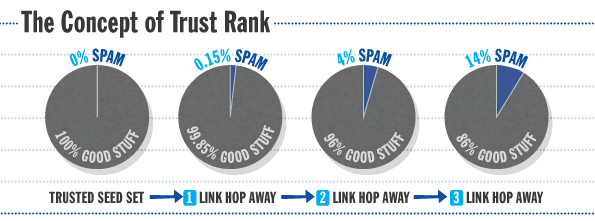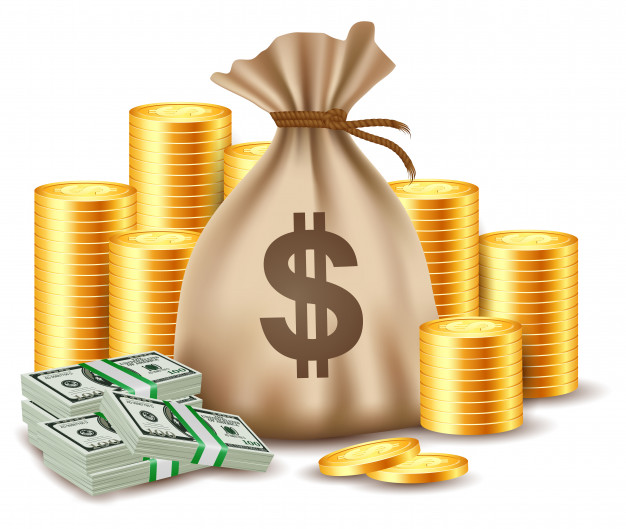CHAPTER 7
Increasing Popularity and Links
With the growing advancement in technology, search engines now link pages together like streets. Many search engines can discover the relationship through link building.
Search engines have begun to treat links as polls which they consider in ranking popularity and importance. They consider click-through rates as votes, and they have developed the data on link building to a fine art, with the use of complex algorithm to perform nuanced evaluations of sites according to the information.
Noteworthily, a good deal of search engine’s algorithms is attributed to link related factors by experts, but Link is not all there is to do. Apart from determining the popularity and relevance of websites and pages by considering the number of click-through on a link, engines can also determine their trust, spam, authenticity with links. Reliable sites often have links to other sites, but plagiarized sites rarely link to other sites. When they do, it is to untrusted sites too. Links can help you identify top quality documents too.
Link Signals
Used by search engines
Haven’t you wondered how search engines attach value to links? It’s simple. First, we will consider the elements of links, and how search engines assess these elements afterwards. The proprietary metrics each search engine uses is never made public, but thorough analysis of patent application, years of experience, hands-on-testing serve as avenue from which we draw inferences about how these search engines really do it. Some factors usually considered by SEOs when measuring link value and site’s link profile are highlighted below.
Global Popularity
The importance attached to links from a site increases with the site’s popularity. For instance, Wikipedia is an important site with thousands of sites and links linking it, this increases its popularity. You should try to establish link with other sites and many other webpages, this increases your popularity, and the rate at which search engines would begin to trust your site.
Local/Topic-Specific Popularity
Search engines can also boost your popularity as a result of your local popularity. For instance, if your site sells dog houses, a link from the Society of Dog Breeders matters much to search engines. It helps them believe in the authenticity of your site. This concept was first championed by Teoma search engine.
Anchor Text
Increasing the number of right keywords in your content also leads search engines to trust you. This is a style called anchor text. More examples of this can be found here, “click here,” where you will find out that many results produced by the search engine are solely because of anchor text.
TrustRank
It is noteworthy that about 60% of the webpages are scam and they contain data which the users will not likely request. Search engines employ strategies of TRUST to remove these pages from their priority list. Earning links from recognized institutions, firms, Universities, Government Websites can remarkably boost the trust of search engines.
Link Neighborhood
Spam sites do not usually have links, and when they do, it is to spam pages too. search engines can consider this and evaluate your “link neighborhood”. With this, they can determine the originality of your site. This is why you must be very critical of pages and sites your site can be linked from as well as sites you link to.
Freshness
Due to user experience and such similar factors, many popular sites go stale and fail to earn new links. The more a site ages and fails to earn a “FreshRank,”, the more it is less trusted, lest ranked and valued by search engines, as they consider its popularity among users decreasing.
Social Sharing
Prior to the last few years, search engines had noticed, but given not much concern to content and link sharing on social sites such as Facebook, Twitter and Google+. In recent times however, experts are showing interest in social link signals and debating on how to link social link signals into their algorithms because social channels and social audience keep increasing.

The Power of Social Sharing
How Google+, Twitter, and Facebook Change the Game
After the remarkable rise in the social sharing in 2011-2012, many search engines, including Google were influenced. Google for instance, began to include massive amount of social signals into its search results. so search results produced by Google include personalized information shared by a user or an individual’s social circle (Facebook, Twitter et al). searcher’s therefore have access to the information shared on the s0cial site once they log in. this kind of result do not usually appear among the top ten, but they are promoted especially with increased click-through.
This power shift from ordinary search results to social sites is a very common trend currently. People with large social circle tend to promote ads on their pages than ordinary advertisement, and their face is promoted all over search engines as people search the materials they produce. Many publishers and companies have resorted to negotiating such individuals into promoting their pages, and search engines like Google promote such individuals and the items.
Are Social Shares the Same as Links?
Of course not! Links are considered much more important by search engines before anything, and as earlier mentioned, Likes, Shares, Tweets and so forth are not criteria but sometimes considered for ranking.
Link Building Basics
Link building is the most interesting, challenging and creative part of SEO. It is a success determinant too. Building Link requires you to think creatively, as no matter the similarity, there’s no two perfectly similar links. The two major factors that defines your link outlook are your personality and your website, and the three basic types of link acquisition are highlighted below:

- “Natural” Editorial Links: Just as it sounds, Natural links have been created by other pages that would be linked to your company, and you need do is create an excellent content and deft awareness on it.
- Manual “Outreach” Link Building: Unlike the Natural Link, the SEO has to create this. It often requires submitting sites to directories, mails and paying to have your link established on a target site. You may have compose propositions on why your link is in the best interest of your link target like a resource person convincing a Professor that his resource is worthy of inclusion on the public syllabus.
- Self-Created, Non-Editorial: Self- created links are about the easiest to create. You can easily do this on your user profiles, blog comments, guest book signing or even booking on sites. They are often low valued, hence low ranked by sites, and only important in a few sites or situations. Search engines consider them spam, penalize sites that emphasize such links and devalue them. As a result, they must be pursued with caution.
Which of these link types will have the highest return if invested on? That’s up to you as an SEO to decide. Although, it is always advisable to establish a vast and varied link profile which compels search engines to consider your link special. The uniqueness, irregular, classical and outstanding structure of your link makes it a target for search engines.
You should work on marketing immediately your site is established, and before anything, create your goals, plans and strategies to achieve them. You cannot evaluate the efficacy of your marketing strategy, and this is why it must be done as best as possible, although, search engines can precisely measure the success of your strategy.
You should consider certain signals to help you build a valuable link. They include the link signals earlier mentioned, and the following metrics:
Ranking for Relevant Search Terms
You can determine the efficacy of your marketing strategy and how much search engines value your page by searching keywords or phrases your page targets. (especially words that occur in your title tag and headline). If ‘dog kennel’ are your keywords for instance, search on a browser and the rating of your site among search results can help you determine the value search engines place on your page.
Some pages are less popular, but getting enough links from them increases ranks too.
Competitor’s Backlinks
You can learn more by evaluating other site that rank well on your keyword. Consider the inbound or backlinks and form solid opinions on how this site was able to meet demand. You can discover these links using tools like Open Site Explorer and applying what you learnt must help immeasurably,
Number of Links on a Page
The number of links on a page that links to yours largely determines the value of yours. How? The more the links, the less the value of each! Users get easily distracted with more links to try. So, it is highly recommended that you’re linked to pages with few links. This must be painstakingly considered in your link acquisition campaign. Read our article to learn more about internal linking!
Potential Referral Traffic
Making top ranks on search engines is not the final priority of good links, they must also be good enough to drive and maintain the right users to the page. While you cannot perfectly evaluate the value search engines place on your site, you can evaluate the rate of user experience and visitors by considering the number of visits, page views, comments et al according to site analytics. If your site is not designed to provide this info, you may get an estimate through services like Google Trends
Building a link to satisfaction of the SEO and users require practice, experience and time. Especially as they relate to Search engine traffic. You may however determine the level of your link acquisition campaign with site analytics.
Success comes when you see increases in search traffic, higher rankings, more frequent search engine crawling and increases in referring link traffic. If these metrics do not rise after a successful link building campaign, it’s possible you either need to seek better quality link targets, or improve your on-page optimization.
Be sure you have successfully launched a great link acquisition campaign the moment you notice increase in search traffic, frequent search engine crawling and of course, increase in rank. If you do not notice this however, you need to work on-page optimization or find better quality link targets.
Five Samples of Link Building Strategies
● Get your customers to link to you
You could also build strong links by getting your dedicated clients to display graphic icons that link back to your site on theirs. It is similar to having them wear your customized T-shirts. Bumper stickers or getting them to carry a placard for you. you can easily achieve all these with a link on their page that links to your page.
● Build a company blog; make it a valuable, informative, and entertaining resource
- This is one of the most tangible and efficient link building strategy, create company blogs that can maintain link from other blogs including blog directories. Such blogs should also participate in contributing fresh materials and participate in conversations across the web.
● Create content that inspires viral sharing and natural linking
● Creating contents that would most definitely suit your user’s needs, arouse their interest and compel them to share with friends is a noteworthy link building strategy. Providing information the users desire especially in a humorous style can influence users to share it with friends. Even bloggers and tech experts will be attracted by posts such as David Mihm’s Local Search Ranking Factors, Compare the Meerkat. They help SEO to build trust and faithfulness from users, and ranking from sites.
Be newsworthy
Arousing interest from news media and bloggers is perhaps the cheapest and easiest link building strategy. All you need do is create an interesting activity that could pick the interest of media outlets. This may include creating a new product, stating something controversial or giving away something for free.
The link building activities you engage in depend largely on the type of site you’re working with.
For smaller sites, manual link building, including directories, link requests, and link exchanges may be a part of the equation. With larger sites, these tactics tend to fall flat and more scalable solutions are required. Sample strategies are listed here, though this is by no means an exhaustive list Search for sites like yours by using keywords and phrases directly relevant to your business. When you locate sites that aren’t directly competitive, email them, use their online forms, call them on the phone, or even send them a letter by mail to start a conversation about getting a link.

Show Me the Money
An aside on buying links
Google and Bing seek to discount the influence of paid links in their organic search results. While it is impossible for them to detect and discredit all paid links, the search engines put a lot of time and resources into finding ways to detect these. Websites caught buying links or participating in link schemes risk severe penalties that will drop their rankings into oblivion. Notwithstanding these efforts, link buying sometimes works; many search professionals wish the search engines would do even more to discourage it.
Search engines such as Google and Bing detest paying for links. Hence, they employ all measures possible to detect and punish all sites buying or engaging in link schemes. Websites caught are sometimes penalized by drastically dropping their rankings.
While link buying could be hitch free occasionally, we highly recommend that you build your own links.










